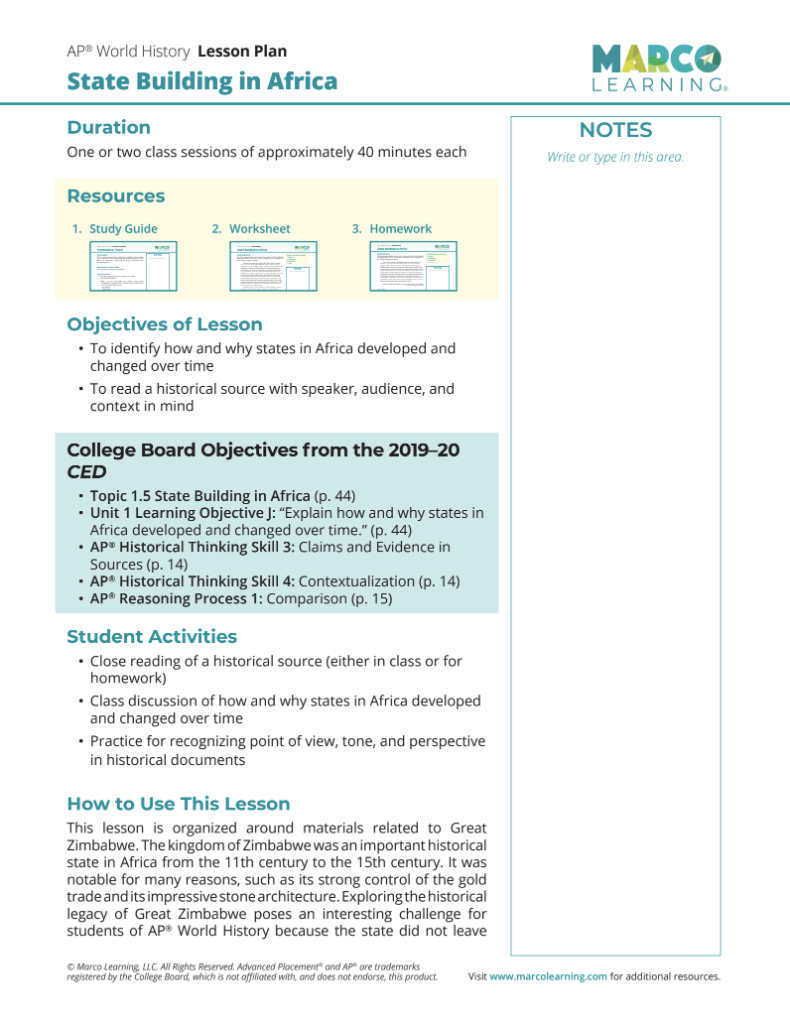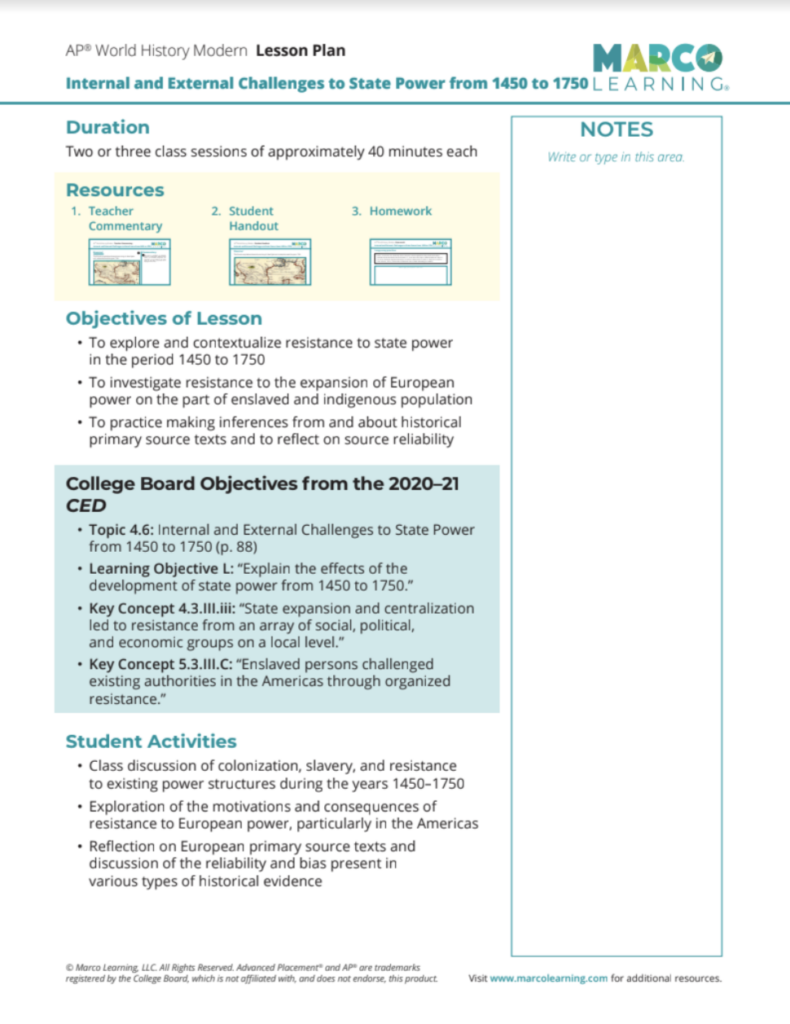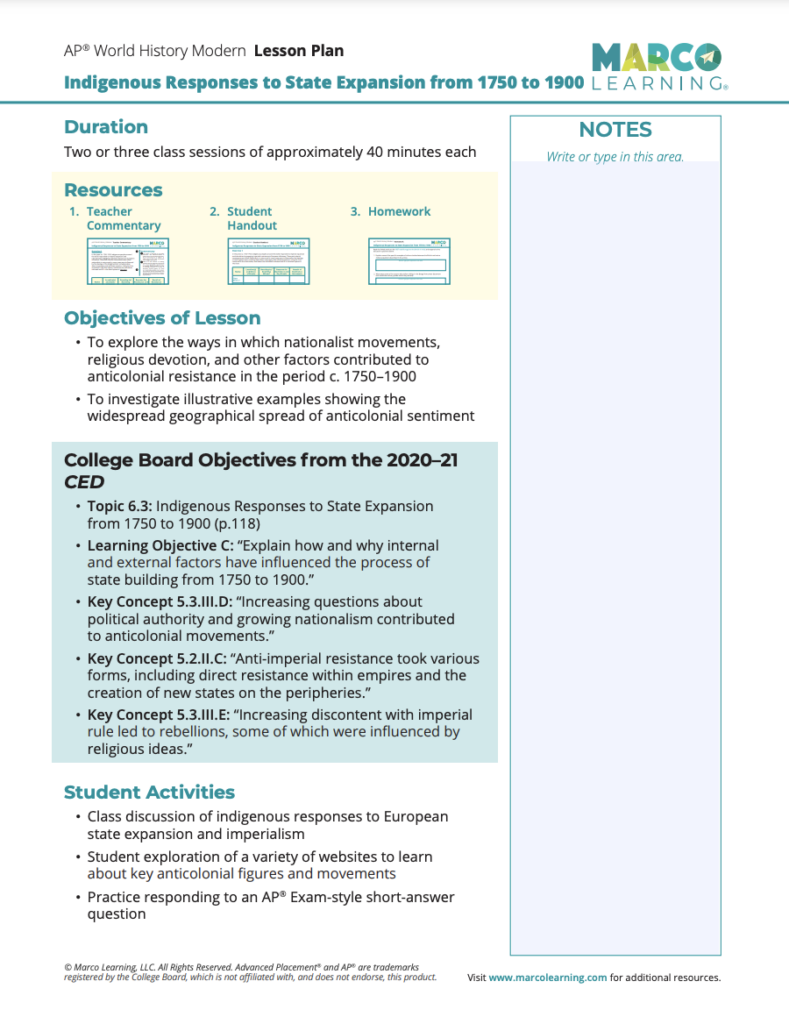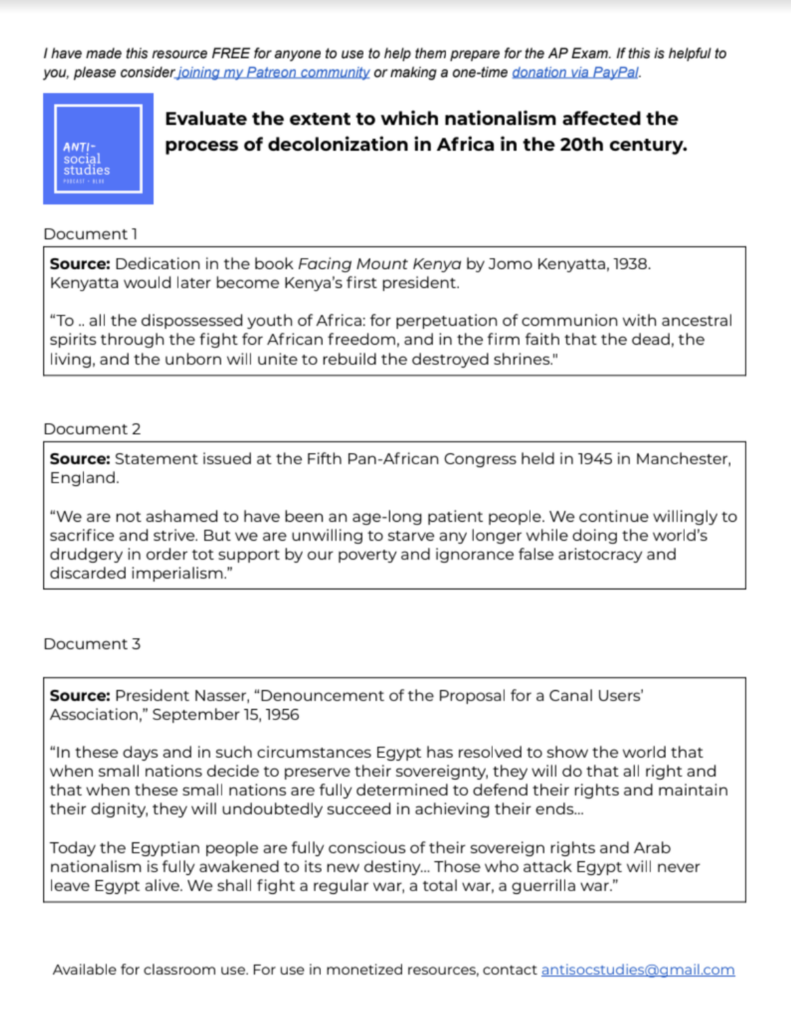by Emily Glankler
If you teach AP World History, no matter where (or when) you are in your curriculum, you can celebrate Black History Month! Here are some great starting topics and resources, organized by era, to discuss (or review) with your students.
Statebuilding in Africa (1200 – 1450)
Across the continent, this era was a Golden Age for great African trading kingdoms. West African empires dominated the gold-salt trade while the Swahili Coast served as the gateway between the African interior and the Indian Ocean trade routes.
The civilization of Great Zimbabwe represents a mysterious exception. Although they seem to have built great wealth by providing resources to the coastal trading cities, they remained isolated in southern central Africa. Historians are still sorting through artifacts to learn more about this civilization, much like this lesson plan that guides students through historical sources about Great Zimbabwe.
Marco Learning Lesson Plan: Evaluating Historical Sources Related to Great Zimbabwe

Internal and External Resistance to State Power (1450-1750)
Unit 4 can easily fall into a Eurocentric narrative about the “Age of Discovery” and expansion of European maritime empires. This is why Topic 4.6 is, in my opinion, one of the most important sections of the entire course. It’s important that students understand that for every “empire expanding” there were indigenous or enslaved people resisting that expansion.
While there are some great individual leaders to discuss during this era (Queen Nanny of the Maroons is always a favorite amongst my students), this lesson plan provides a broader view of both Black and indigenous resistance to slavery and colonization.
Marco Lesson Plan: Black and Indigenous Resistance in the Americas

Indigenous Responses to State Expansion (1750-1900)
Similar to Unit 4, the “Age of Imperialism” often becomes a birds-eye view of various methods of European (and US and Japanese) colonization. But the AP World curriculum is full of Black anticolonial heroes across Africa. Also, this seems like a great opportunity to encourage your students to watch The Woman King starring Viola Davis in a (mostly factual) depiction of the Kingdom of Dahomey.
This lesson guides students through their own research (with a teacher key to help you with figures you maybe didn’t learn about in school) on anticolonial leaders across Africa, Asia, and the Americas.
Marco Learning Lesson Plan: Anticolonial Leaders and Movements

Decolonization in Africa (20th century)
Modern decolonization movements are a perfect way to celebrate Black History Month because students can make the connection to traditionally celebrated US figures like Dr. King and Malcolm X. Within this topic of decolonization, there are so many amazing connections between US History and AP World: W.E.B. Du Bois chose to live out his life in the newly independent Ghana; Bayard Rustin spent seven weeks in India studying Gandhi’s philosophy of nonviolence (which he would bring home and pass on to Dr. King in Montgomery.)
This is a great opportunity to have students practice a DBQ by exploring documents from across the continent of Africa related to nationalism and decolonization.
Anti-Social Studies DBQ: Nationalism and Decolonization in Africa (20th. C)

Looking for more Lesson Plans? Marco Learning has thousands of them! Check out Teacher Support and Lesson Plan Bundles.
For more Black History Lesson Plans and additional resources, go to our Black History Resources page!

Emily Glankler has taught almost every Social Studies course for the past decade from 6th grade World Cultures through AP® U.S. History but her favorite course to teach is AP® World History. She has taught AP® History courses at both private and public high schools in Austin, Texas and she was the team lead responsible for bringing AP® World (and building the curriculum from scratch) to the last two high schools where she has taught. Emily has also led professional development within Austin ISD as an Instructional Coach as well as presenting to an audience at SXSW EDU about incorporating current events into the core curriculum. She has a B.A. in History from the University of North Carolina at Chapel Hill and an M.A. in History from Texas State University. In addition to teaching full time, Emily also writes and produces a history podcast called Anti-Social Studies that is used by teachers and students in history classrooms around the country.
 Help
Help